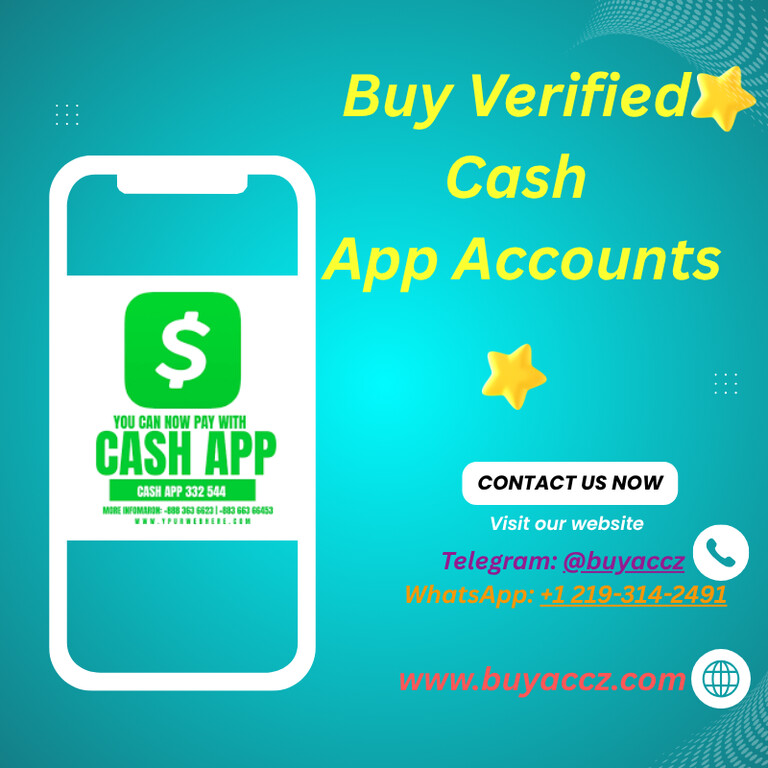OpenSimWorld is the directory of 3D Virtual Worlds based on OpenSimulator and connected through the HyperGrid. Learn More
New Members
Phkbfg971x, RayneBlaze, SelenaaFletcher, LalaFunkel, Edyth_Aviatik, Morgane Volaren, DanteYe, Mario1983, Mirabella, RobertHims, Aduda, MarkMaxwell, DJ_DaDy, Chriss, Monica40, Marlis, Yingyong, Essence-Media, Kikkobis65, DebbieThomLikes
How to Spot Fake Buy Verified Cash App Accounts Sellers

Worried about scammers selling “Buy verified Cash App accounts”? Learn how to spot fake sellers, red flags to watch for, safer alternatives, and steps to protect your money and identity — including how to research sites like buyaccz.com before you engage. Every few months a new marketplace sprouts promising “verified” Cash App accounts, instant access, or no-questions-asked transfers. People tempted by speed can lose money fast — either to outright scams or to frozen funds and legal headaches when accounts are tied to stolen IDs. This guide shows you how to spot fake sellers, what warning signals to look for, and how to protect your business or personal finances. I’ll also cover safer alternatives and a short reconciliation note on researching sites such as buyaccz.com. This is about protecting you — not helping anyone break platform rules. 📨 Telegram: @buyaccz Fake sellers market convenience: instant verification, bulk accounts, guaranteed safety, or “no KYC required.” They use persuasive language to create urgency and downplay risks. Remember: verification is an identity-linked compliance process — any seller who claims they can legally sell verified status for a fee is offering something that should immediately raise suspicion. Look beyond screenshots. Fake testimonials often repeat the same phrases, use stock-photo profile pictures, or appear only on the seller’s site and not on independent forums. Search for the reviewer’s name, check for long-term online presence, and treat anonymous or unverifiable reviews as worthless. Real customers can usually be corroborated on multiple platforms. Scammers prefer irreversible payments — cryptocurrency, wire transfers, or gift cards — because they’re hard to trace or reverse. Legitimate vendors typically accept traceable methods (credit cards, PayPal with buyer protection) and have transparent refund policies. If a seller insists on crypto or asks you to send money outside of normal payment rails, walk away. Promises of “no paperwork” or “instant delivery” A Verified Cash app accounts often mean the seller is using stolen IDs or temporary access that will be revoked. These shortcuts cheat platform safeguards; once detected, accounts are frozen and funds are lost. Any vendor promising to bypass KYC (Know Your Customer) rules is explicitly tempting you into risky and likely illegal activity. Use multiple search engines, social platforms, and forum archives. Look for consistent business details: registration documents, verifiable contact information, and a long-standing online presence. If the only mentions are on the seller’s own pages or on low-quality classified sites, treat the business as suspicious. Not necessarily. Scammers often invent fake escrow services or impersonate legitimate ones. Always verify the escrow provider independently — check their domain, business registration, and third-party reviews. Better yet, avoid deals that require non-standard escrow arrangements for sensitive items like verified accounts. Legitimate services outline clear refund, dispute, and service-level policies. A seller who avoids putting these terms in writing, or whose policy is vague or overly restrictive, is likely hiding something. If refunds are conditional on actions you can’t control (like account remaining unfrozen), that’s a red flag. Screenshots can be forged and temporary access can be revoked. Sellers may show you a working account for a few hours, then lock you out after payment. Demand evidence that can be independently verified (which in this case — selling verified accounts — should still be treated with caution). Remember, legitimate account verification binds an account to the verified person’s identity; it’s not a commodity. Ask for verifiable business registration, invoice history, and independent references. Avoid engaging with sellers who insist on secrecy, request background account details, or pressure you to pay quickly. If the seller tries to shift the conversation to private channels only (Telegram, WhatsApp), that’s usually because they don’t want a traceable record. Scammers use time pressure (“this offer expires”), social proof (“only 2 left”), and complex-sounding tech talk to confuse buyers. They may claim legal cover or “special relationships” with platform employees. Take a breath. These are classic manipulative tactics — and buyers who respond emotionally are more likely to lose money. Beyond losing money to a scam, you risk frozen funds, account bans, and potential legal exposure if stolen identities were used. For businesses, this can mean lost revenue, reputational damage, and regulatory scrutiny. The short-term “gain” rarely offsets the long-term costs. Never pay with irreversible methods for account access. Use independent channels (Better Business Bureau, consumer forums) to verify sellers. Keep documentation of all communications for dispute reporting. Prefer trusted, compliant payment/business solutions (merchant processors, bank transfers) for scaling payments. If a deal feels risky, don’t do it — the cost of checking is tiny compared to the loss from a bad trade. A freelancer paid for a “verified” account via crypto; the account was later frozen and the freelancer lost the payment and the funds in the account. The seller disappeared; no recourse. An online seller used a supposedly vetted vendor’s “bulk accounts” during a sale. When customers disputed charges, the platform froze the account and held funds for weeks while investigating identity mismatches. The business lost revenue and customer trust. Scammers selling “verified” Cash App accounts prey on urgency and the desire for shortcuts. The safest approach is simple: treat any seller promising to bypass verification or KYC as a red flag, verify business credentials independently, avoid irreversible payment methods, and use legal, reputable payment solutions for your business buyaccz.com. If you’ve already engaged with a suspicious seller, act fast: document everything, contact your payment provider, and report the incident to the platform and local authorities. Protect your money and your identity — short-term convenience is never worth long-term risk. Q: Are there any safe marketplaces to buy verified accounts? Q: What if a seller guarantees refunds if the account is frozen? Q: How can I report a suspicious seller? Q: Should I ever research sites like buyaccz.com?How to Spot Fake Buy Verified Cash App Accounts Sellers
📱 WhatsApp: What does a fake seller of “verified Cash App accounts” usually claim?
How can I tell if a seller’s testimonials are real?
Why payment method requests are a major red flag
What does “no paperwork, instant delivery” usually hide?
How to check a seller’s online footprint effectively
Are escrow or “middleman” services proof of legitimacy?
How to read the fine print: refund and dispute policies
Why screenshots and temporary access are unreliable “proof”
What questions should you ask (and which to avoid)
How sellers pressure victims: common social-engineering tactics
What legal and practical consequences follow from using bought accounts
Practical steps to protect yourself and your business right now
Examples (short case studies)
Conclusion
FAQs
A: No reputable marketplace should sell verified accounts — verification is an identity-bound compliance process. Any marketplace offering these is operating in a legal and ethical gray (or black) area.
A: Guarantees are meaningless if the seller disappears or if funds were paid in irreversible ways. Even with refunds, you risk involvement in identity theft investigations.
A: Report to your payment provider (credit card company, bank), the platform being misrepresented (e.g., Cash App), local law enforcement if identity theft is involved, and consumer protection organizations in your country.
A: Yes — research them, but with caution. Check for business registration, independent reviews, and whether their offerings imply breaking platform rules. Mentioning such a site here is to urge careful vetting — not to recommend using it.
Comments
No comments yet
